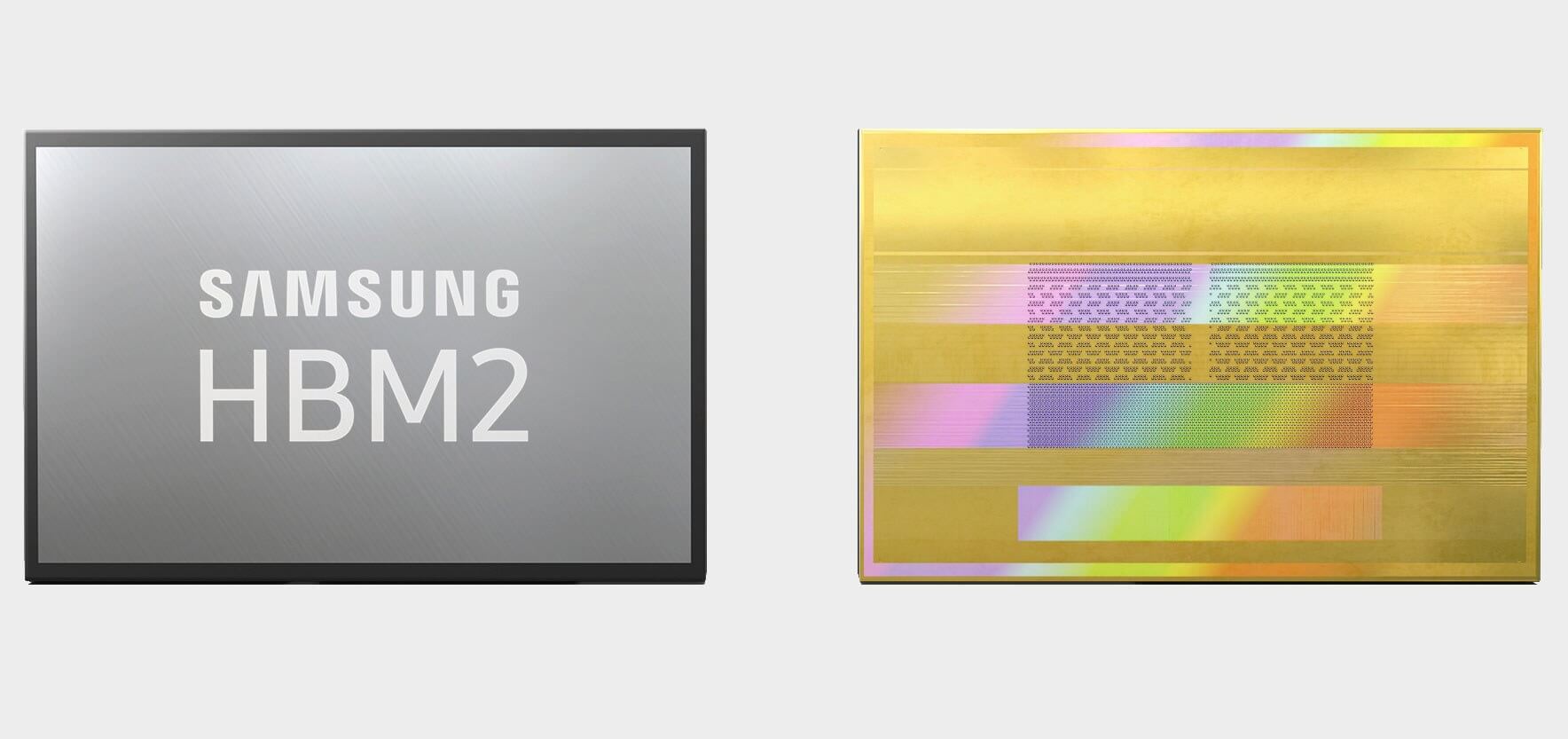What just happened? Samsung has announced the latest version of its High Bandwidth Memory—HBM2E—at Nvidia’s GPU Technology Conference. Called Flashpoint, the memory stacks increase performance by 33 percent compared to previous-gen HBM2.

Samsung says Flashbolt can reach 3.2 Gbps per pin. Not only is it faster than its predecessor, but it also doubles the density to 16 gigabits per die and comes in stacks of eight. That equals a single package capable of 410 GB/s memory bandwidth and 16GB of capacity. As noted by Extreme Tech, a Radeon VII, which uses four memory stacks, equipped with this type of memory would pack 1.64TB/s of bandwidth and a massive 64GB of memory.
"Flashbolt’s industry-leading performance will enable enhanced solutions for next-generation datacenters, artificial intelligence, machine learning, and graphics applications," said Jinman Han, senior vice president of Memory Product Planning and Application Engineering Team at Samsung Electronics. "We will continue to expand our premium DRAM offering, and improve our ‘high-performance, high capacity, and low power’ memory segment to meet market demand."
This third generation of HBM2 comes just over a year after Samsung announced Aquabolt, which boosted the performance of first-gen Flarebolt by 50 percent to 2.4 Gbps.
Samsung hasn’t revealed the full details of Flashbolt, such as when it will go into mass production, but the statement suggests it will appear in professional applications before eventually making its way to consumer products. There’s also a question over price, with HBM2 more expensive than the GDDR5/6 alternatives. But as PC Gamer writes, the fact it’s denser could push down HBM2 prices in general.
https://www.techspot.com/news/79295-samsung-new-hbm2e-memory-boosts-speed-capacity.html